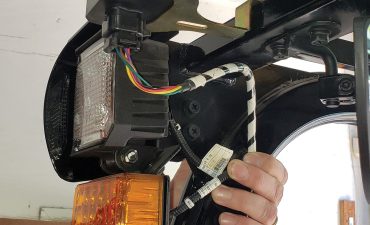Managing a fleet in Georgia isn’t just about keeping trucks moving. It’s about safety, savings, and staying ahead of the law. One of the biggest challenges today? Speed. Whether it’s fuel use, driver behavior, or accident risks, speed control technology can make a real difference.
If you’re looking for trusted fleet speed regulation tools United States, it’s smart to understand how this technology works and why it’s becoming essential for fleets in Georgia.
What Is Speed Control Technology?
Speed control tech is any system that helps manage how fast your vehicles go. It’s more than just a speed limiter. It includes tools that connect to a vehicle’s engine control unit (ECU) or use GPS and telematics to track and adjust speed automatically.
These systems can:
- Set maximum speed limits
- Warn drivers in real time when they’re speeding
- Automatically reduce speed in school zones or sharp turns
- Create reports for fleet managers on driver behavior
Some tools use geofencing, which changes speed limits based on location. Others work with AI to predict unsafe speed patterns before something bad happens.
Why It Matters for Fleet Managers in Georgia
Georgia has its own challenges. Heavy traffic in Atlanta, long rural stretches in South Georgia, changing weather in the mountains — all of these affect driving conditions. And speeding in any of these situations puts your fleet, your drivers, and your company at risk.
More police departments in Georgia now use speed enforcement cameras. And insurance companies are paying close attention to how safe your drivers are. If your fleet has too many speeding violations, you may see your premiums jump.
Key Benefits of Speed Control Systems
Speed control tech isn’t just about following the law — it helps your business run better.
Fuel Efficiency
Speeding burns fuel fast. Reducing average speed by just a few miles per hour can cut fuel costs across your fleet.
Fewer Accidents
Limiting speed lowers the chance of crashes. That means fewer repair costs, fewer injuries, and less downtime.
Better Driver Behavior
When drivers know their speed is being tracked, they’re more careful. You also get the data to coach them.
Easier Compliance
It’s tough to stay on top of every driver and route. These tools help you meet federal and Georgia state regulations automatically.
Georgia Regulations and Legal Considerations
While the federal FMCSA (Federal Motor Carrier Safety Administration) sets many rules, Georgia adds its own layer. Here’s what you need to watch:
- Speed limits for commercial vehicles on highways and local roads.
- Enforcement cameras in school and construction zones.
- Data retention rules for electronic logging devices (ELDs) and telematics.
If your drivers get caught speeding — especially near schools — the fines are serious. And if there’s a crash, you could be legally liable if you didn’t take steps to prevent dangerous driving.
Choosing the Right Speed Control Tech for Your Fleet
There’s no one-size-fits-all answer. The best system depends on your fleet’s size, type of vehicles, and what technology you already use.
Ask these questions:
- Does it work with my current telematics or ELD system?
- Can I change speed limits for different routes or vehicle types?
- Is it cloud-based or does it need on-board hardware?
- Does it offer real-time alerts and long-term data reports?
Some advanced systems even integrate weather data and traffic updates to adjust speeds on the fly.
Implementation Challenges and How to Overcome Them
Switching to speed control tech can come with bumps in the road:
Driver Pushback
Some drivers may not like losing control. Explain the safety benefits and show them how it helps everyone go home safe.
Upfront Costs
Yes, there’s an investment. But between fuel savings, lower insurance, and fewer violations, many fleets see ROI in less than a year.
Tech Integration
Make sure your speed solution works with your GPS, ELD, and route planning tools. Start with a pilot program before going fleet-wide.
Case Studies: How Georgia Fleets Are Using Speed Tech
One Atlanta-based delivery company installed geofenced speed controls. After 3 months, they reported:
- 27% drop in speeding events
- 15% savings in fuel costs
- Zero accidents during that time
A logistics firm in Macon used AI-based limiters on its long-haul trucks. Their insurance provider gave them a 10% discount after seeing improved safety scores.
Future Trends in Speed Control Technology
The road ahead is smarter. Expect:
- AI systems that learn driver habits and suggest coaching tips
- Speed control based on real-time traffic, road grade, and weather
- Integration with autonomous driving features for partial self-driving
Compliance will also get easier. Systems will generate reports that meet state and federal standards — with no paperwork.
Final Takeaways
Speed control technology isn’t just another gadget — it’s a must-have tool for running a safe, cost-effective fleet in Georgia. From saving fuel to avoiding fines, the benefits are real. And with the right system, you don’t just track your fleet — you take control of it.
If you’re serious about making your fleet safer and smarter, now’s the time to explore modern solutions.









